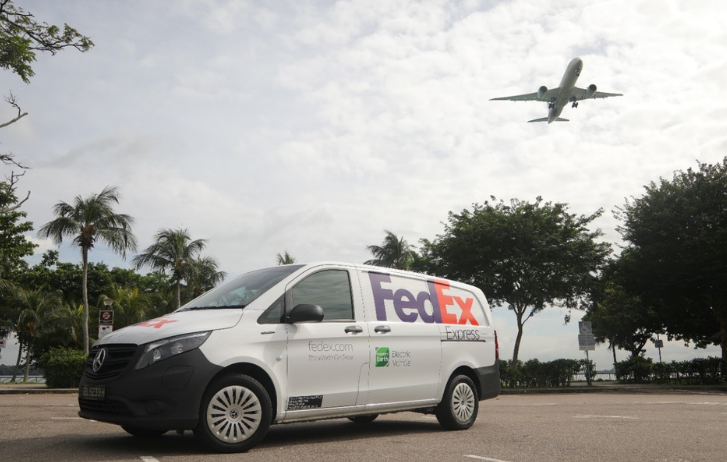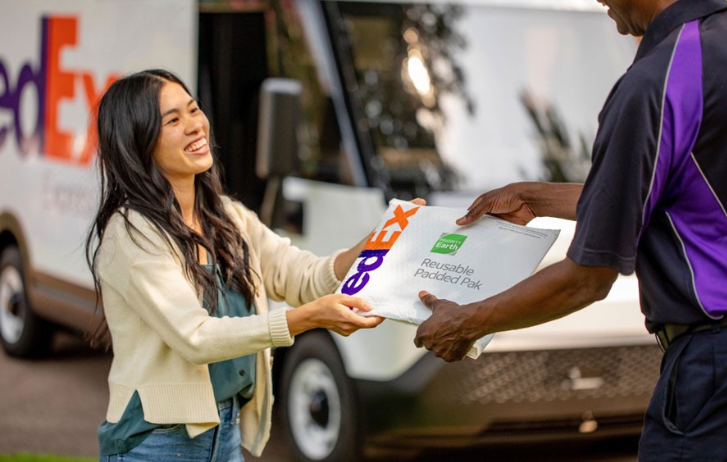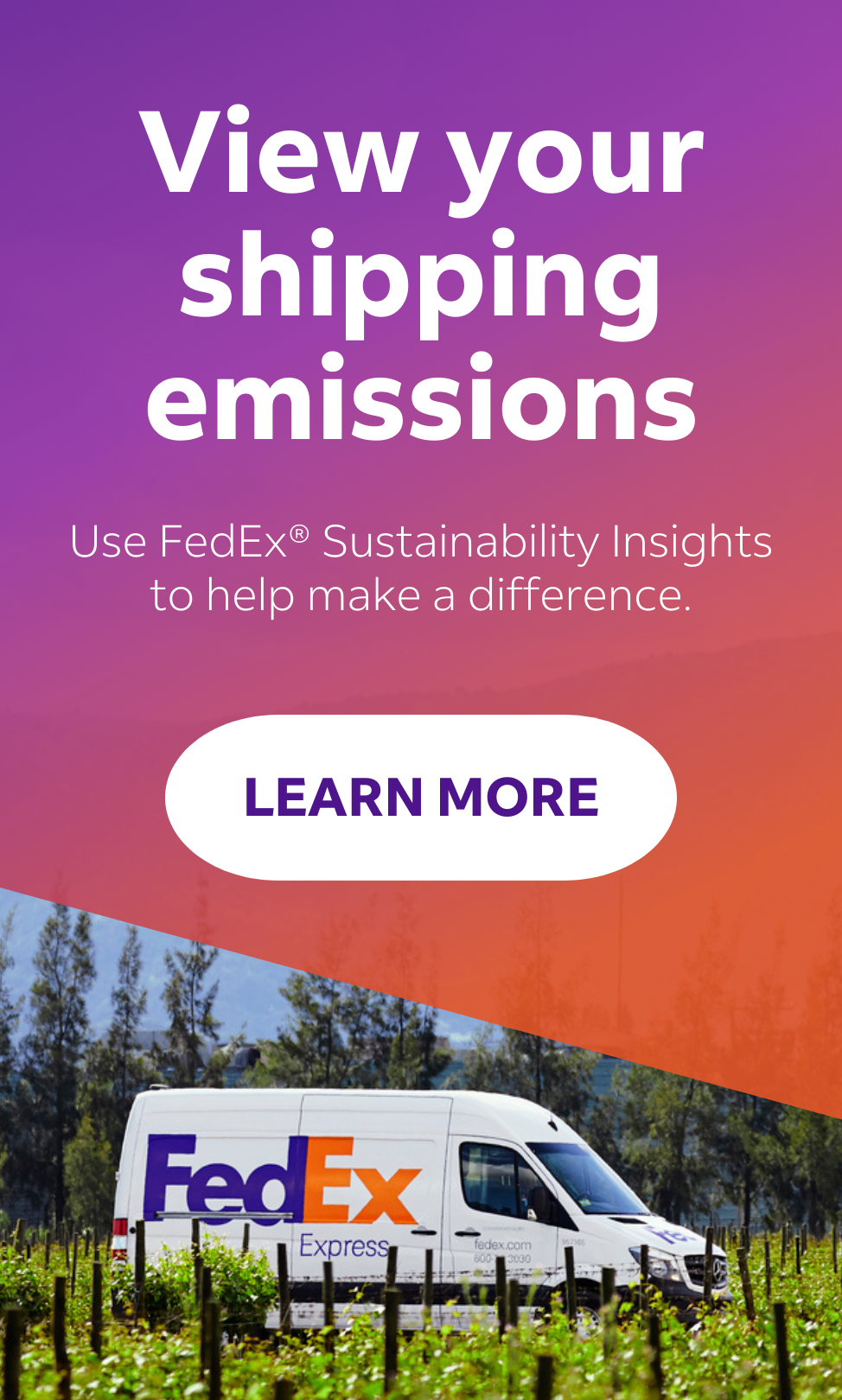
Building Resilient And Sustainable Supply Chains For A Greener Future
By FedEx | September 29, 2023 Updated: November 26, 2025
From climate risks to shifting trade routes, businesses need to rethink how they move goods. Sustainable supply chains built on innovation, transparency, and smarter logistics are emerging as the foundation for future resilience and growth.
- Sustainable supply chains are essential for business resilience, helping companies balance efficiency, agility, and environmental responsibility.
- Innovation and near-real-time visibility are driving smarter logistics across Asia Pacific, empowering businesses to strengthen supply risk management and reduce emissions.
-
FedEx is taking steps to achieve carbon-neutral operations by 2040, supported by fleet electrification, fuel-efficient aviation, and sustainable packaging.
With shifting trade routes, rising climate risks, and evolving customer expectations, companies are rethinking how they move their goods.
In 2025, 29% of companies consider natural catastrophes a top global business risk, with another 19% highlighting concern for risks related to climate change. Businesses are particularly wary of the impacts of extreme weather, including damage to production sites, supply chain bottlenecks, and disruptions to logistics. These vulnerabilities are driving the shift toward supply chains that can withstand shocks while remaining efficient.
Building sustainable supply chains means creating networks that can adapt to disruptions, optimize operations, and minimize environmental impact. Given that up to 90% of a company’s emissions are embedded in its supply chains, integrating sustainability into procurement and logistics has become a critical strategy for effective decarbonization.
Across Asia Pacific (APAC), manufacturers, retailers, and logistics providers are responding by re-engineering how they source, ship, and deliver goods. The focus is on building supply chains that are both resilient and sustainable – and creating networks that are smarter, more efficient, and better prepared for what comes next.
What makes supply chains resilient and sustainable?
Supply chain resilience is the ability to absorb shocks and recover quickly. But long-term resilience depends on sustainability. By integrating sustainable practices, supply chains can not only weather disruption, but do so with minimal waste, lower emissions, and greater visibility.
Technology and data sit at the heart of this shift. Businesses are investing in supply risk management systems, predictive analytics, and circular logistics models to reduce vulnerability and create value. The result is a new kind of supply chain, one that is flexible in design yet steadfast in purpose, where sustainability and innovation work hand in hand.
FedEx’s roadmap for a greener, more resilient world
At FedEx, sustainability is a long-term commitment to transforming how the world moves goods. Our goal is to achieve carbon-neutral operations by 2040, with clear milestones to get there. By 2025, we aim to have half of our parcel pickup and delivery vehicle purchases to be electric. In five years, that figure is targeted to rise to 100%. By 2040, our entire owned and contracted fleet will be fully electric.
Across APAC, we already operate electric vehicles (EVs) in China, Hong Kong, Taiwan, Japan, Korea, Singapore, Malaysia, Thailand, New Zealand, and Australia. In 2024, FedEx set a record by completing the first cross-border package delivery from Malaysia to Singapore using an EV, as recognized by the Malaysia Book of Records. It’s a small step in reducing emissions, but a giant leap toward cleaner logistics.
Our commitment to a green supply chain extends beyond vehicles. We’ve invested in alternative fuels to reduce aircraft emissions and optimized flight efficiency through our FedEx Fuel Sense initiatives. We’ve also pledged USD 100 million to help establish the Yale Center for Natural Carbon Capture. Each of these efforts is part of our broader strategy to reduce, replace, and revolutionize how we operate.
Packaging innovation plays a vital role as well. We now offer the FedEx Reusable Pak, which is made from recycled materials and enables customers to reuse instead of discarding packages.
Finally, data helps tie it all together. Through FedEx Sustainability Insights, businesses can access near-real-time data on the estimated CO₂e emissions of their shipments. Since 2023, over 13,000 customers globally have used this tool to generate emissions reports, supporting their own sustainability reporting and planning. Insights like these help companies make informed choices and measure progress toward their climate goals.
Innovation driving sustainable supply chain management
Sustainability and innovation have always progressed hand in hand at FedEx. Today, we’re exploring the possibilities of automation to unlock efficiency while reducing emissions.
In markets like Singapore and China, FedEx has implemented AI-powered robotic arms to sort packages with greater precision and speed, improving throughput and energy efficiency. Behind the scenes, data analytics help forecast demand, optimize routes, and minimize waste – all essential elements of sustainable logistics.
By combining technology with a clear sustainability strategy, we’re building a logistics network that is fast and future-proofed. This means fewer delays, lower emissions, and better visibility across every link of the supply chain.
Looking ahead: A smarter, cleaner logistics ecosystem
Sustainability is now a core measure of competitiveness. Businesses that integrate environmental responsibility into their supply chains are finding that it leads to stronger customer trust, greater efficiency, and long-term cost savings.
At FedEx, our journey toward carbon neutrality continues, guided by innovation and collaboration with customers who share our vision of a cleaner, more connected world.
Ultimately, resilience and sustainability are two sides of the same coin. By investing in smart technologies, cleaner transport, and transparent data, companies can create supply chains built not just to survive disruption, but to lead the future of global commerce.
***
Learn more about how FedEx is shaping sustainable logistics here.
SHARE THIS STORY
- How To Ship A Giant Panda
- Where Do Old Planes Go When They Retire?
- What’s So Dangerous About Coconuts? Your Guide To Dangerous Goods Logistics
- Generative AI: A New Frontier
- 85% Of APAC Businesses Plan To Expand Into Europe, According To New FedEx Report
- The Rise Of Intra-Asia Trade: Opportunities In The China-Southeast Asia Corridor
Sign up now and save on your shipping rates!
Sign up now and earn discounts by shipping instantly with FedEx Ship ManagerTM at fedex.com.
Recommended For You
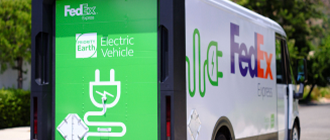
How EVs Are Driving Towards A More Sustainable Future
Driving towards our goal of achieving carbon neutral operations by 2040, we’ve been busy testing and deploying zero-emission electric vehicles.
Read More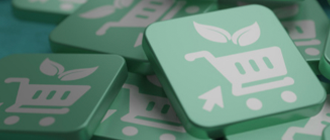
E-Tailers: Your Customers Are Shopping More Sustainably
For small businesses, easy-to-implement sustainability wins can have a huge impact on consumer perception and spending.
Read More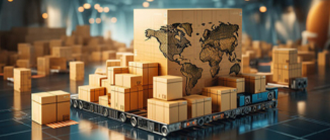
Supply Chain 5.0: How To Operate Sustainably
Supply chains are shifting to meet ESG requirements. Companies that move quickly to transform their operations will be in a stronger position.
Read More